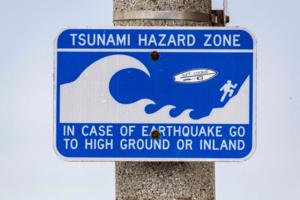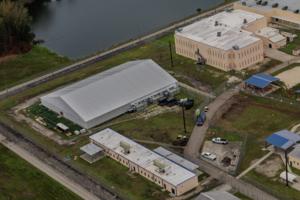Current News
/ArcaMax

Trump demands drug companies slash US prices in blow to industry
President Donald Trump escalated his campaign to pressure pharmaceutical companies to lower drug prices, sending letters to 17 of the world’s largest drugmakers demanding they charge the U.S. what other countries pay for new medicines.
In the letters, sent to Eli Lilly & Co., Novo Nordisk A/S, Pfizer Inc. and others, Trump insisted companies ...Read more

Following fires and a tsunami, a push to force LA to finally analyze evacuation routes
LOS ANGELES — After an investigation from the Los Angeles Times found L.A. city had failed to publicly comply with a 2019 law requiring it to analyze the capacity, safety and viability of its evacuation routes, Council member Traci Park filed a motion that would force the city to comply.
“The Palisades fire underscored just how vulnerable ...Read more

Massachusetts Gov. Maura Healey offers plan to offset federal research grant cuts
BOSTON — The Bay State will attempt to bridge the economic divide caused by the federal government’s sudden seeming aversion to paying for scientific research with research funding of its own, Gov. Maura Healey said while announcing new legislation.
Healey, speaking from the State House on Thursday, said that her Discovery, Research and ...Read more

NYC shooting victim Wesley LePatner remembered as lifting all she knew: 'Your mother's an angel'
NEW YORK — While juggling the balance of a busy home life and a corporate job, New York City shooting victim Wesley LePatner was adamant about getting home in time to spend evenings with her husband Evan and their kids.
“That was nonnegotiable,” a longtime colleague said.
It was, then, shocking to friends and family that LePatner, a ...Read more

Trump sets tariffs before deadline with 10%, 15% baseline rates
WASHINGTON — President Donald Trump will maintain a minimum global tariff of 10%, while imports from countries with trade surpluses with the U.S. face duties of 15% or higher, the White House announced Thursday.
The White House issued a statement just hours before midnight Eastern time, the deadline Trump set last month after pausing his ...Read more

State DOGE to conduct on-site audits of Florida's Pinellas, Hillsborough counties
TAMPA, Fla. — Florida’s Department of Government Efficiency is set to conduct on-site audits of Pinellas and Hillsborough counties, starting next week.
In letters addressed to the chairpersons of Pinellas and Hillsborough’s county commissions, state officials said their budgets showed excessive spending of tax dollars.
The letters have a...Read more

Locked up by ICE, Haitian businessman, ex-presidential aspirant to remain in detention
MIAMI — A prominent Haitian businessman and onetime presidential aspirant accused of collaborating with armed gangs in Haiti will have to remain in U.S. immigration lockup for now.
Pierre Reginald Boulos, who appeared in immigration court on Thursday, will have to return to court next month after a judge at the Krome North Service Processing ...Read more

Supervisor in Las Vegas legally sold weapon to NYC gunman, lawyer says
LAS VEGAS —An attorney representing the man who sold Shane Tamura a rifle used in a shooting spree that killed four people in Manhattan said the sale was legal.
“Rick Ackley legally sold a firearm to the suspect in the New York shooting and is not a suspect or considered to have any nefarious involvement,” the statement from defense ...Read more

Trump says Witkoff to visit Russia, expects to impose sanctions
WASHINGTON — U.S. President Donald Trump said special envoy Steve Witkoff would be headed to Russia after wrapping up a visit to Israel ahead of a new deadline for Moscow to halt its fight with Ukraine.
“Yeah, going to Israel and then he’s going to Russia, believe it or not,” Trump told reporters at the White House on Thursday.
Trump ...Read more

Lightning sparks wildfire southwest of Boise. It quickly spreads to 6,000 acres
BOISE, Idaho — A wildfire south of Boise has grown to more than 6,000 acres in less than a day.
Fire crews responded at 1:48 a.m. Thursday to the Striker fire, located approximately 4 miles northeast of Murphy in Owyhee County, the Bureau of Land Management said in a social media post.
Between 6 a.m. and noon, the fire grew from 2,000 acres...Read more
News briefs
Harris campaign memoir ‘107 Days’ gets September release date
A memoir about former Vice President Kamala Harris‘ abbreviated and unsuccessful presidential bid called “107 Days” will hit bookstores Sept. 23.
Publishers Simon & Schuster announced the release of Harris’ 320-page tome Thursday morning. She’s scheduled to give her ...Read more

NYC mayor declares state of emergency amid flash flood warning, road closures
NEW YORK — A flash flood warning has been issued for Brooklyn, Manhattan and Staten Island until 6:15 p.m., with authorities warning people not to walk or drive where water covers the road, ensnarling commuters as extreme thunderstorms overtake NYC following a dangerous heatwave.
Mayor Eric Adams declared a state of emergency to allow ...Read more

Epstein's work for Leon Black should face IRS probe, Wyden says
WASHINGTON — A key Senate Democrat broadened his attack on the Trump administration’s handling of records about the financing of Jeffrey Epstein’s sex trafficking network, urging the Internal Revenue Service to investigate his tax and estate planning work for private equity titan Leon Black.
Ron Wyden, the Senate Finance Committee’s ...Read more

Thousands of mourners gather for funeral of NYPD Officer Didarul Islam, killed in NYC shooting
NEW YORK — NYPD Officer Didarul Islam, the police officer gunned down in a Midtown Manhattan mass shooting inside a Park Ave. office building, was posthumously promoted to detective first grade during his funeral Thursday as a sea of mourners, most of them police, gathered outside to pay their respects.
An estimated 15,000 people were on hand...Read more

Park Avenue shooting victim Julia Hyman was killed right after leaving panic room
NEW YORK — The last of the Park Avenue mass shooter’s final victims was in temporary safety in a panic room, only to be killed when she stepped outside of it during a lull in the gunfire, police sources and authorities said.
Initially, it was believed that the victim, Rudin Management associate Julia Hyman, 27, may have thought the gunman, ...Read more

Boston Marathon bomber Dzhokhar Tsarnaev suffers setback in appeals court ruling
BOSTON — Boston Marathon bomber Dzhokhar Tsarnaev has suffered a setback in his death penalty sentencing appeal.
Tsarnaev had been trying to toss the federal judge from the case, as the killer fights to dodge a death sentence.
But a federal appeals court on Thursday ruled that the judge — George A. O’Toole Jr. — will stay on for the ...Read more

'They didn't vote for this': Support erodes as ICE targets noncriminal immigrants
MIAMI — At a rally in Hialeah in 2023, then-candidate Donald Trump made a pledge: to end the “invasion” of the United States by undocumented immigrants. The announcement, made in a city where three-fourths of residents are foreign-born, was greeted with thunderous applause as Trump said his next administration was going to root out ...Read more

Georgia Election Board returns to 2020 election and seeks help from Trump's DOJ
ATLANTA — Three right-wing members of the State Election Board have revived a fight over the 2020 presidential election and called for President Donald Trump’s Justice Department to intervene.
The surprise move Wednesday by the Republican board members — the same three praised by Trump as “pit bulls” during a campaign rally last fall ...Read more

Magnitude 4.3 earthquake in San Bernardino County sends shaking across Southern California
LOS ANGELES — A magnitude 4.3 earthquake rumbled through Muscoy in San Bernardino County on Thursday morning, triggering shaking across the Inland Empire, Los Angeles and Orange counties, according to the U.S. Geological Survey.
The earthquake occurred at 9:32 a.m. at a depth of about 3.3 miles and was followed by a magnitude 3.1 aftershock ...Read more

'Least safe it has ever been,' witness says of Reagan airspace at NTSB hearing
WASHINGTON — A witness criticized the safety of the airspace around Ronald Reagan National Airport since a mid-air crash in January, as National Transportation Safety Board officials examined whether the air traffic control tower at the airport was ill-equipped to handle the area’s heavy congestion.
“The airspace system, since 1986 — ...Read more
Popular Stories
- Trump voters wanted relief from medical bills. For millions, the bills are about to get bigger
- Dozens injured as Delta flight hits turbulence at 37,000 feet, diverts to Twin Cities
- Californians agree that this insidious invader must be held at bay
- How Florida missed out on $2.2 billion in Medicaid funding for schools
- How ICE is using the LAPD to track down immigrants for deportation





